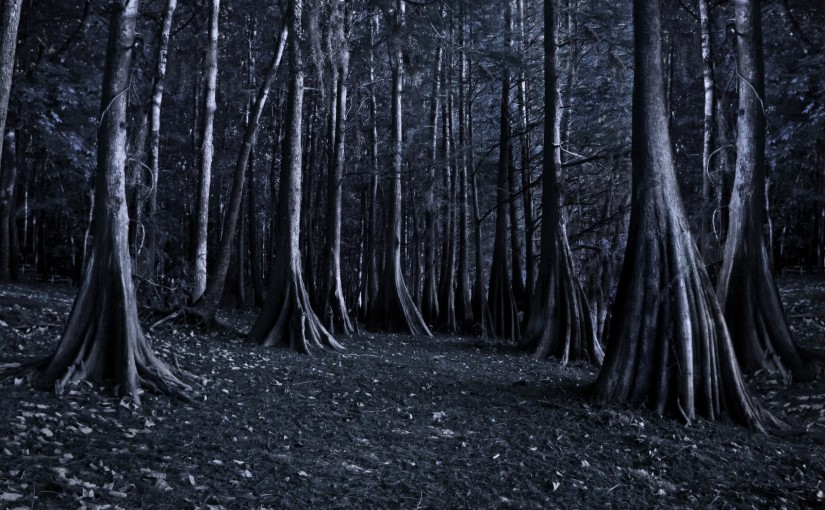The Black Iron Prison was the hidden architecture of what was called the Age of Iron. Which was what basically the Old Testament covered: the wrath of God, who was a jealous God. The Age of Gold is what Jesus Christ came to bring about: the God of mercy, the God who is love. One might well wonder, just exactly how is it that the first God is the same God as the second? There was one theory a friend of mine handed me, that when God came down to Earth and lived life as a man, He at that point understood the human condition, and sort of mellowed out. But aren’t we told that God does not change? How is it that the God who is love rained down fire and brimstone and obliterated Sodom and Gomorrah?
One idea that might lead us somewhere is the Book of Job. This is where God and Satan (the Satan who at that time seemed to be a minor functionary in His court) made a wager at the expense of Job. Satan, in stages, completely wrecks the man: kills all his children, breaks his bank, and even covers him in painful sores. At the end, when Job is at the end of his rope—complaining how it’s not fair—God shows up and asks him, where were you when I laid down the foundations of the world? Basically, oh, do you really know so much as to criticise Me? What one is careful to mark, however, was that at no time does He bring up Satan as the culprit of his pain. God takes all the credit for all that happens to Job, good and bad—telling him, I know better, I know why.
What if there are other “judgments of God” that aren’t actually Him, in just the same way? It’s an interesting take. He would have known about them all, but He had delegated certain authority to other entities, who were not “all love”, that did all the bad things we associate with that unforgiving Age of Iron… But we can investigate another avenue, which is to follow what Jesus Christ said about divorce. That Moses gave divorce to the people because of the hardness of their hearts. Down that simple road of thought, the trip leads to the stop that it was us that changed, not God. Something happened to change us, to change the whole equation of the world: and it was Jesus Christ. Not just what we observed on Earth, but a hidden act, within the sign of Jonah.
Harshness, in the Age of Iron, was the only way things got done. We were all in the Prison, which, indeed, was not the work of God. The Black Iron Prison was what the world in its entirety was contained within. We had to play by Prison rules. And if we were going to be like that, God was going to be hard on us—not the least reason of which was because we deserved it. Then, something amazing happened: Jesus who is Christ came here, and He broke the vicious feedback loop, and breached the Iron. And the breach was like the tiny mustard seed, which took and is taking 2000 years to blossom. For a thousand years is as a day to God, and the Christ was two days in the earth. The breach finally bubbled up to the top in 1974 in the resignation of Richard Nixon—a king deposed by tradesmen, without a drop of blood being shed. Hallelujah.
But now, as we are still left with much of the trappings of darkness, let us be ready to understand the world in a greater vision than was apportioned Job: the Iron was not of God. You can believe in a God who is all love, and that includes both mercy and justice. Many things He took credit for, and blame, many misunderstandings he patiently suffered until the time came as to remove from us the judging of God by man. Whether we be ready or not for the Age of Gold to come, it comes. In certain places it has come already, but not nearly enough. And some still work as if the Iron has not broken, but we know better. Light has already peeked in. Hearken: the Beginning is near.

